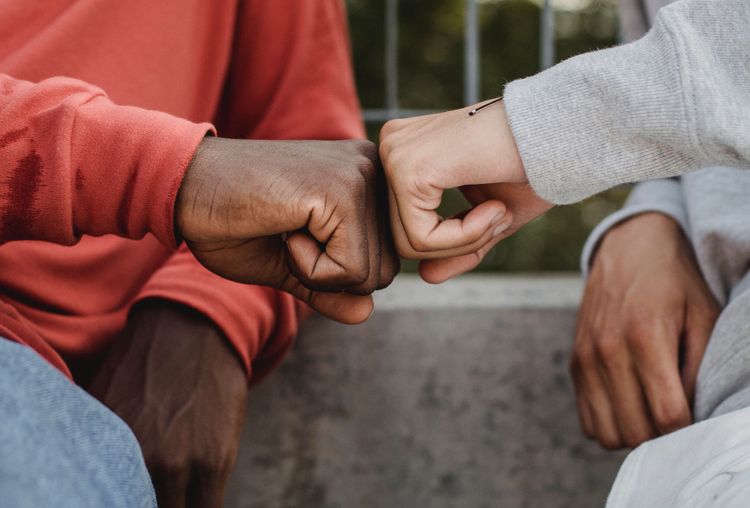
When the Memphis police released video footage of Tyre Nichols' recent violent arrest, the pain, anguish, and fear of this injustice were felt by people of color across the U.S. and beyond, reminding them of their own painful experiences of racism and triggering past trauma.
But could racism also be at the heart of chronic stress and anxiety among people of color, and is it possible to find emotional healing?
What is racial trauma?
Continued exposure to racial discrimination, microaggressions, harassment, and violence can cause deep scars on one's mental well-being.
Whether it's experiencing racism first-hand or witnessing a member of one's community go through it, the strong negative impact of these encounters is similar to post-traumatic stress disorder (PTSD).
The term "racial trauma" recognizes how complex facets of one's identity — race and ethnicity — influence the unique stressors they're exposed to throughout their lives and what healing could look like.
Definition: Racial Trauma
“Racial trauma, or race-based traumatic stress, is the cumulative effects of racism on an individual's mental and physical health.”
Source: The Journal of the American Academy of Psychiatry and the Law
What is the impact of racial trauma?
The effects of racial trauma are far-reaching and can cause a ripple effect in all aspects of one's life.
The most prominent symptoms of racial trauma are chronic stress and worry. For example, results from a 2022 Stress in America Survey reveal that 75 percent of Black adults report racial climate as a significant source of stress. These percentages are high for other communities of color as well: 70 percent for Latino adults and 69 percent for Asian adults.
Experts say chronic stress can lead to other poor health behaviors, such as lack of sleep, smoking, and binge eating — all of which adversely affect one's physical and mental health. And the worst part is that some of these health consequences can even be passed down from generation to generation.
Other common symptoms of racial trauma include:
- Low self-esteem and self-worth
- Intrusive thoughts
- Dissociation/withdrawal through avoiding people, conversations, or places
- Increased irritability and hypervigilance
- Heightened feelings of anxiety, accompanied by physical symptoms (headaches and palpitations)
How can people heal from racial trauma?
The roots of racism are pervasive and deeply entwined in North American society. This makes coping with racial trauma especially hard because societal systems continue to foster discrimination and racial inequities. Still, it is possible to find hope through empathy and validation. It's important to remember the path toward healing isn't linear, and the journey will look different for everyone.
If you or a loved one is experiencing racial trauma, here are some actions that can help:
- Finding a community in friends, family members, or a support group, so you can openly share your thoughts and emotions
- Seeking a therapist who specializes in race-based trauma
- Using positive self-talk to boost confidence
- Engaging in activism to gain a sense of empowerment
- Limiting your use of social media and the news cycle to manage triggers
- Finding healthy outlets for self-expression (journaling, painting, music, etc.)
Additional resources on racial trauma:
Reading List compiled by clinical psychologist Monnica Williams
Healing from Generational Trauma - a workbook from Althea Therapy
Photo by Toya Beauty on Unsplash
Participate
Help us understand how discrimination impacts women's mental health and develop ways to help people cope by participating in our study, Discrimination & Mental Health in Our Community.


